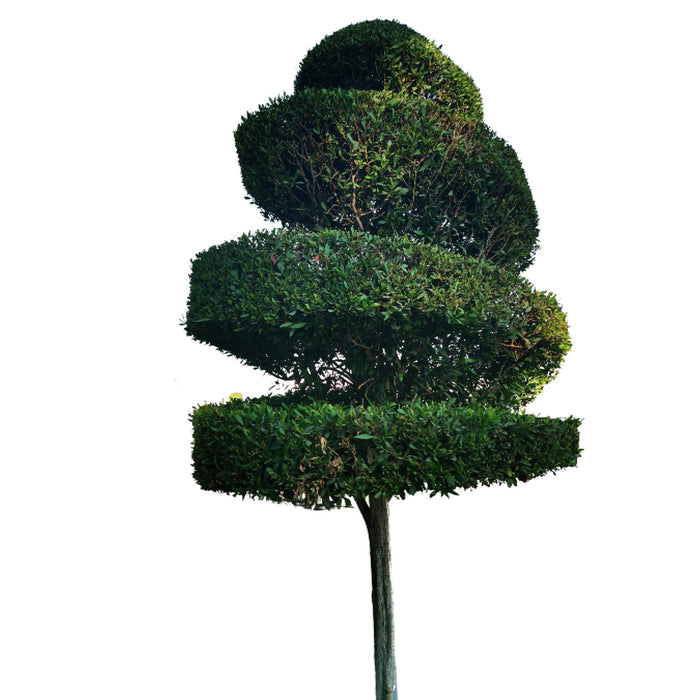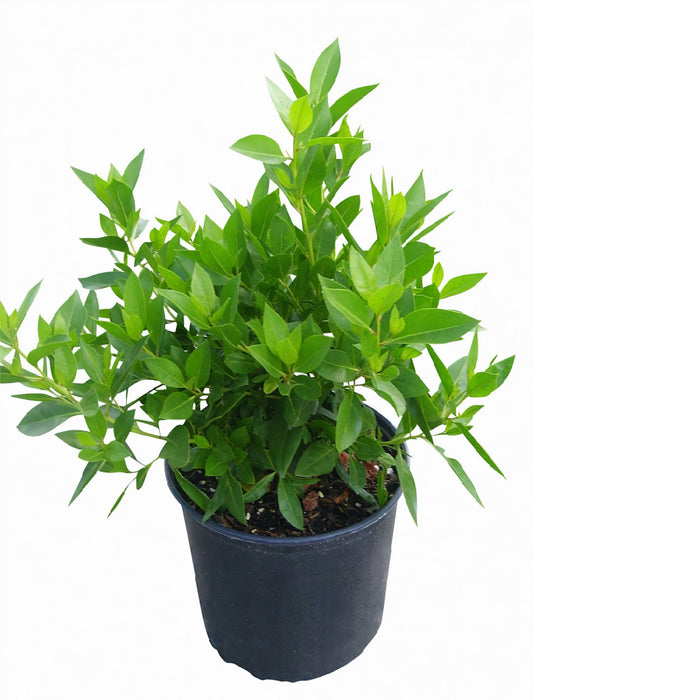
Damas Tree| Conocarpus Erectus (Buttonwood/Button Mangrove)
- Description
- Plant Care
- Disclaimer
-
Damas Tree is an effective native oil absorber that is widely used for the stabilization of soil projects. The thick root system and large fibrous growth habit make it a great tree for this purpose. Damas is a fairly robust tree that needs little water. In fact, it is the Damas tree is in the top ten of species that can be described as "difficult to propagate by seed."
Plant button mangrove in full sun to ensure optimal health and growth on any one of a variety of soils ranging from alkaline to acidic, medium to dense, and moist to dry. It is extremely drought and salt-tolerant and is often employed as a hedge windbreak, specimen plant along the coast, or further inland in urban environments that are difficult. To keep away aphids as well as sooty mold, make sure you have high air circulation and lots of suns. Be careful not to wet the leaves by using sprinklers.
The Damas Tree is native to the coastal and riverine regions of Djibouti and Yemen. It is widely used in landscaping projects in the Middle East. However, this tree is very dangerous as its roots can damage swimming pools, boundary walls, and underground piping systems. The pollen emitted by the Damas tree can cause asthma and other health problems, so it is best to avoid them wherever possible. However, in some cases, they can be beneficial to the environment, such as when used in the context of landscaping projects.
Its root system Damas Tree can grow so deep that it could be encroaching on bathtubs in a villa's pipes. The water leak that is caused by the Damas tree may eventually cause the top of an entire house, damaging the foundation. Residents in Arabian Ranches have complained about an increase in Dewa costs due to Damas's damages to trees. Yet, despite all the issues certain people are pleased having a damas plant in their backyards.
This Green Buttonwood is a Florida native tree that is renowned for its durability. Its drought and salt tolerances make it a wonderful screening for privacy. It can be used as hedges or as a shade plant, and even as a specimen. It is oblong with medium-sized green leaves and reddish-brown fruit that resembles dried raspberries or pine cones. The brown bark is spongy and beautiful, usually attractive on plants that have an elongated, constrained form due to exposure to the sea breezes.
The Conocarpus tree has a complex root system. Consequently, it can be a weed in some areas. The Ministry of Municipality and Environment has banned its cultivation and sales. It has been banned from public areas because of its potential for clogging drains and snaking underground pipes. Its roots can also damage buildings and roads by reaching depths that are similar to their height above ground. There are also many dangers associated with this tree, and the Public Parks Department has warned the public to avoid it.
A native of the United Arab Emirates, the Damas Tree has a diverse range of uses, including landscaping and screening in Karachi and other desert regions. The tree is used for a variety of applications, including water purification and desert reclamation. Additionally, its leaves are known to have anti-diabetic properties. Its widespread use in the Middle East has made it an excellent choice for desert environments. Its popularity has increased in recent years, and its benefits for the environment continue to grow.
The Damas Tree can grow up to 50 feet tall and spread to 20 feet. Typical trees are low-growing shrubs and are only a few feet tall. They have alternate-looking leaves that are lance-shaped and arranged in pairs. Typical buttonwood leaves are glabrous, whereas silver buttonwood leaves are covered in silky hairs. The plant can grow as a single-stemmed tree.
-
 Full Sun or Partial Sun.
Full Sun or Partial Sun. Watering from a hose or sprinkler should be done slowly and deeply, Allow soil to dry several inches deep before irrigating.
Watering from a hose or sprinkler should be done slowly and deeply, Allow soil to dry several inches deep before irrigating. Lightly amend heavy clay or sandy soils with organic matter.
Lightly amend heavy clay or sandy soils with organic matter. 17 – 38 °C
17 – 38 °C The plant needs a regular "diet" of all-purpose plant food or a generic NPK.
The plant needs a regular "diet" of all-purpose plant food or a generic NPK. -
The image shown is for reference purposes only. The actual product may vary in shape or appearance based on climate, age, height, etc. and Plants will be delivered in plastic pots unless different Pot options are selected by the customer explicitly.
All information here is provided in good faith, however, we make no representation or warranty of any kind, express or implied, regarding the accuracy, adequacy, validity, reliability, availability, or completeness of any information on the site.

